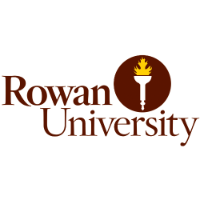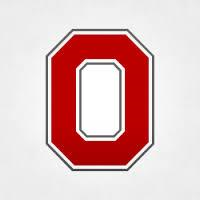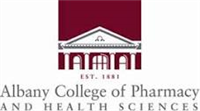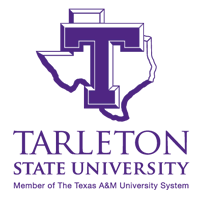What do they do?
Perform complex medical laboratory tests for diagnosis, treatment, and prevention of disease. May train or supervise staff.
Also known as:
Clinical Laboratory Scientist (CLS), Clinical Laboratory Technologist, Histologist Technologist, Medical Laboratory Technologist (Medical Lab Tech), Medical Technologist (MT), Microbiology Technologist
-
0%
Change
Select a state to see its job growth rate rankingJob Openings
Select a state to see its net job growth ranking
-
Ohio State University-Main Campus
Columbus, OH
-
-
Rowan University
Glassboro, NJ
-
Drexel University
Philadelphia, PA
-
Yale University
New Haven, CT
Looking for colleges that offer a specific major? Use the College Match Tool to find your best-matched schools and discover your estimated Net Price!
Most Popular Majors that prepare Medical and Clinical Laboratory Technologists
-
#1
-
Degrees Granted
366
-
Female Students
260
-
Male Students
106
-
Median Starting Salary
$48,800
-
-
#2
-
Degrees Granted
122
-
Female Students
90
-
Male Students
32
-
Median Starting Salary
$48,800
-
-
#3
-
Degrees Granted
48
-
Female Students
24
-
Male Students
24
-
Median Starting Salary
$42,090
-
-
#4
-
Degrees Granted
16
-
Female Students
14
-
Male Students
2
-
Median Starting Salary
$48,800
-
-
#5
-
Degrees Granted
12
-
Female Students
10
-
Male Students
2
-
Median Starting Salary
$48,800
-
People in this career often have these skills:
- Reading Comprehension - Understanding written sentences and paragraphs in work-related documents.
- Active Listening - Giving full attention to what other people are saying, taking time to understand the points being made, asking questions as appropriate, and not interrupting at inappropriate times.
- Critical Thinking - Using logic and reasoning to identify the strengths and weaknesses of alternative solutions, conclusions, or approaches to problems.
- Science - Using scientific rules and methods to solve problems.
- Operations Monitoring - Watching gauges, dials, or other indicators to make sure a machine is working properly.
People in this career often know a lot about:
- Medicine and Dentistry - Knowledge of the information and techniques needed to diagnose and treat human injuries, diseases, and deformities. This includes symptoms, treatment alternatives, drug properties and interactions, and preventive health-care measures.
- Biology - Knowledge of plant and animal organisms, their tissues, cells, functions, interdependencies, and interactions with each other and the environment.
- Customer and Personal Service - Knowledge of principles and processes for providing customer and personal services. This includes customer needs assessment, meeting quality standards for services, and evaluation of customer satisfaction.
- Chemistry - Knowledge of the chemical composition, structure, and properties of substances and of the chemical processes and transformations that they undergo. This includes uses of chemicals and their interactions, danger signs, production techniques, and disposal methods.
- English Language - Knowledge of the structure and content of the English language including the meaning and spelling of words, rules of composition, and grammar.
People in this career often have talent in:
- Written Comprehension - The ability to read and understand information and ideas presented in writing.
- Near Vision - The ability to see details at close range (within a few feet of the observer).
- Oral Comprehension - The ability to listen to and understand information and ideas presented through spoken words and sentences.
- Inductive Reasoning - The ability to combine pieces of information to form general rules or conclusions (includes finding a relationship among seemingly unrelated events).
- Deductive Reasoning - The ability to apply general rules to specific problems to produce answers that make sense.
- Problem Sensitivity - The ability to tell when something is wrong or is likely to go wrong. It does not involve solving the problem, only recognizing that there is a problem.
- Information Ordering - The ability to arrange things or actions in a certain order or pattern according to a specific rule or set of rules (e.g., patterns of numbers, letters, words, pictures, mathematical operations).
- Category Flexibility - The ability to generate or use different sets of rules for combining or grouping things in different ways.
- Oral Expression - The ability to communicate information and ideas in speaking so others will understand.
People in this career often do these activities:
- Analyze laboratory specimens to detect abnormalities or other problems.
- Analyze laboratory findings.
- Operate laboratory equipment to analyze medical samples.
- Maintain medical laboratory equipment.
- Collect biological specimens from patients.
- Enter patient or treatment data into computers.
- Develop healthcare quality and safety procedures.
- Clean medical equipment or facilities.
- Prepare medical supplies or equipment for use.
- Prepare biological specimens for laboratory analysis.
- Communicate detailed medical information to patients or family members.
- Communicate test or assessment results to medical professionals.
- Cultivate micro-organisms for study, testing, or medical preparations.
- Train medical providers.
- Supervise technical medical personnel.
- Determine protocols for medical procedures.
- Conduct research to increase knowledge about medical issues.
This page includes data from:

 Occupation statistics: USDOL U.S. Bureau of Labor Statistics Occupational Employment Statistics
Occupation statistics: USDOL U.S. Bureau of Labor Statistics Occupational Employment Statistics
 Videos: CareerOneStop, USDOL/ETA and the Minnesota Department of Employment & Economic Development
Videos: CareerOneStop, USDOL/ETA and the Minnesota Department of Employment & Economic Development









